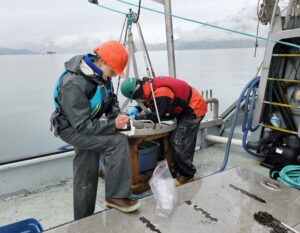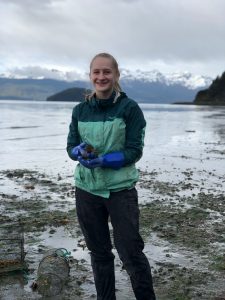
The Council is looking for a college student located in Valdez, Alaska, to support its Environmental Monitoring Program until June 2025. The final project of this paid internship will connect the program’s goals as well as the intern’s area of interest.
Who: Open to a college or graduate student in Valdez, AK.
What: An internship to complete the following activities and deliverables:
- PWSRCAC Long-Term Environmental Monitoring Project (LTEMP) fieldwork preparation activities and participation
- Fieldwork will occur in early May and June 2025
- Weekly journal documenting your experience and progress
- Final project connecting to LTEMP research priorities and your interests
- A poster documenting your project
- A presentation of your project and poster at the Environmental Science Symposium during UAA/PWS College finals week
- Drafting an internship manual
- A post-program reflection.
When: The internship will last from January or February 2025 until June 2025.
Special requirements: You will need to be present in Valdez for fieldwork through June 15, 2025. The internship includes travel funds to return to Valdez to participate in field work if you need to leave at the end of the semester.
Mentorship: Dr. Danielle Verna and Maia Draper-Reich from PWSRCAC and Dr. Amanda Glazier from PWS College will work with you to accomplish the tasks of the internship and learn about oil spills and related environmental science more broadly.
Stipend: You will receive a $2,500 stipend to assist with out-of-pocket costs, such as gear, transportation, and final project costs.
Opportunities: Tuition is available for PWS College students to receive academic credit for this internship. Funding is also available for you to attend a relevant conference event related to the internship to further your educational goals. Use of conference funding is optional.
Application: Please submit a resume and cover letter to education@pwsrcac.org by January 8, 2025 to apply. Interviews will be conducted in person at the PWSRCAC office in Valdez during the week of January 13, 2025.
Contact: Reach out to Maia Draper-Reich (education@pwsrcac.org, 907-273-6235), PWSRCAC Outreach Coordinator, if you have any questions.
